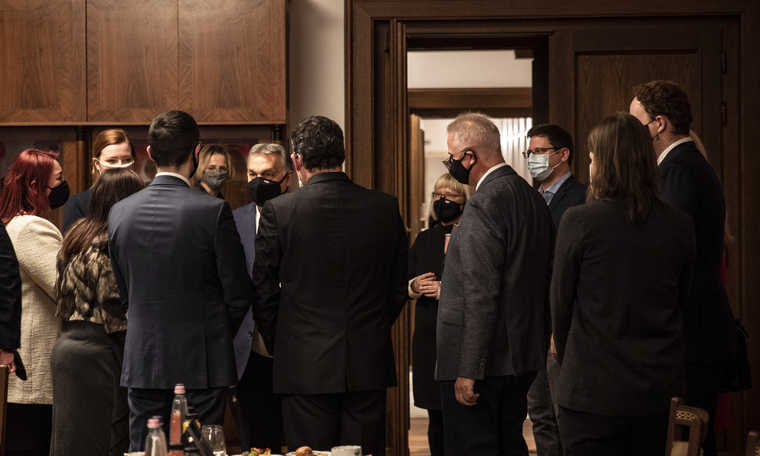By: V4 Agency
Defeating the coronavirus epidemic, attacks by the Hungarian and European left against the country, the pressure of migration, the allocation of resources by Brussels and the future of Fidesz within the European People’s Party all featured among the issues discussed at a meeting between Hungarian PM Viktor Orban and the MEPs of the Fidesz-Christian Democrat party alliance earlier this week, Tamas Deutsch told Hungary’s public radio. The Fidesz MEP called it joyful that the European left spoke highly of Hungary’s pandemic response.
On Monday Prime Minister Viktor Orban, the president of Fidesz, welcomed the MEPs of the Fidesz-Christian Democrat alliance at the Carmelite Monastery. First, participants agreed that it would be important for EU-level decisions – designed to help member states’ fight against the coronavirus epidemic – to be taken by the European Parliament, MEP Tamas Deutsch has said.
The politicians acknowledged a change in European opinions about Hungary. In the spring, the Hungarian and European left were involved in a “running race of sorts, to see who could better discredit Hungary and the Hungarian government with bigger lies.” During the fall and the second wave of the pandemic, “European voices have been toned down in this smear campaign”, which Tamas Deutsch has described as joyful. Opinions regarding Hungary’s pandemic response are positive and appreciative, he said, adding however, that the Hungarian left has “remained where it was in the spring”.
The issue of migration also featured on the agenda, the Fidesz MEP has said, adding that although participants devoted less time to it, the pressure of migration remained huge.
The New Pact on Migration will be a key topic for EU decision-makers in the coming months “with many opposing views expected to clash,” he stressed.
According to the European left, which also includes the left-wing in Hungary, “the time has come to implement the Soros Plan, but there is a sober voice – represented primarily by the countries of Central Europe – saying that the Union must protect its external borders”. They argue that instead of inviting migrants to the continent, authorities should begin the process of deporting the millions of illegal migrants already present in the EU.
Participants also agreed that Brexit, the UK’s divorce from the bloc, has made it clear that the European Union is burdened by serious internal divisions that have reached a crossroads. During the 7-year budgetary period, which ended last year, Brussels has made evailable 76 billion euros of direct funding to support research and development, Tamas Deutsch explained. Now that the final tally is complete, it turns out that 95 percent of that money went to the 15 countries that joined the EU before the 2004 accession wave, and the remaining 13 states only received around 5 percent. This is “completely absurd,” the Fidesz MEP has said.
With the involvement of citizens, there will be an exchange of views within the bloc to discuss decisive issues affecting the future of the EU, he added.
Responding to a question on whether Fidesz would continue in the European People’s Party (EPP), the MEP said they firmly oppose any procrastination. The delaying tactic pursued by the EPP for almost two years now makes no sense, he noted.
They hope the fact that the EPP’s largest member party – the German Christian Democratic Union (CDU) – elected a new president on Saturday will provide new momentum to resolve the current “frozen situation”, Tamas Deutsch has said, adding that it would be good to know whether they will proceed together or part ways in the future.

